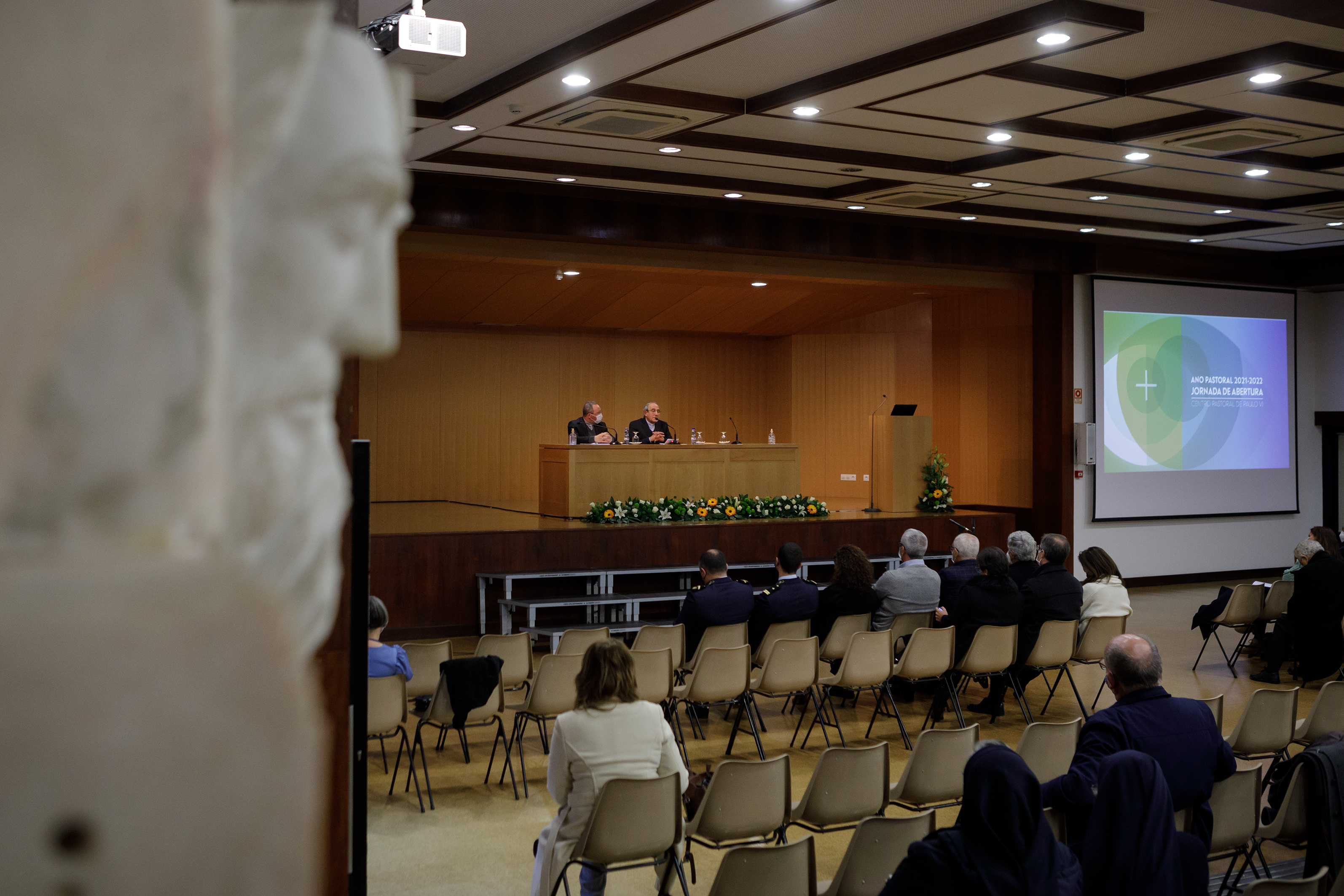27 november, 2021

Cardinal António Marto reports “cultural eclipse” marked by “indifference” before God and othersThe Bishop of Leiria-Fatima presided over the opening day of the pastoral year in Fatima
Cardinal António Marto criticized today the “indifference” that leads men and women to live “in a sort of cultural eclipse of the presence of God, either in consciences or in families, society or culture”. “The major disease of our time is the forgetfulness of God, of the meaning and beauty of the mystery of the Incarnation, of God with us, wishing to make a history of salvation with us and not a lost world” stated the Bishop of Leiria-Fatima, who this Saturday afternoon presided over the opening day of the pastoral year of the Shrine of Fatima, themed: “Arise! You are witnesses of what you have seen”. “This forgetfulness comes from indifference to the mystery of God, a kind of cultural eclipse in families, in society and in culture. God is dispensed with and dispensable,” he clarified. “We feel the financial difficulties, but we cannot feel the lack of God, and the problem is that this indifference then spreads to others”, he added, stressing that the “only thing that matters is the wellbeing of each one”. And he continued: “Europe is experiencing a cultural fatigue that is contagious to Christian communities that are facing a fatigue of faith, or are experiencing an anaesthetized and dormant faith”. “Advent, beginning tomorrow, is a favourable time to rise as Jesus asks of us; in Advent we are invited to look upwards, as one who invites us to raise our minds and hearts above crises and catastrophes and to discover hope and light: there is salvation because there is a saviour; there is redemption because there is a redeemer”, he said. “The message of Fatima is a very serious exhortation that warned the world living in ruins and the church itself that was in danger of being annihilated,” recalled the prelate, inviting Christians to follow the Little Shepherds, “a mystical experience of God”. “The Angel of Peace brought the adoration of God to the centre of the life of the Church and the world. The first experience the Lady offered the Little Shepherds was the experience of God, through His light” he pointed out, stressing that this call to the presence of God goes through “its welcoming” and “involvement”. “It is for us this ‘arise, see and bear witness’”, he concluded, stressing that this “is the triumph of love over the dramas of history”. Cardinal António Marto closed the opening day of the pastoral year in the Shrine, whose proposed theme was meditated upon by Cátia Tuna, professor, historian and theologian. The young professor from the Catholic University of Portugal pointed out that “arise” is the most expressive verb of God's love for man. “Even in the face of the fall, of the senselessness of affliction, Jesus tells us to arise” because the desire to “see us lifted up and erected is “much more obstinate than our fears and weaknesses,” she said. In a meditation on the dialogue between Jesus and Paul, conducted between paintings and reflections, the researcher challenged those present to allow themselves to be flooded by the Light of God, as the Little Shepherds of Fatima did, and to learn from them the itinerary that leads to the true encounter with God. “To see is very important, to know how to look and to learn from that look”, but it is “a deep spiritual life that makes us experts in that look”, she stressed, recalling that prayer can be a good school of learning. The opening of the new pastoral year in Fatima coincides with the beginning of a new liturgical year. This Sunday, the first of Advent, Fatima will begin its new year, which the Rector hopes to be the return to a reality close to the one before the pandemic, especially as for the presence of pilgrims in Cova da Iria. |